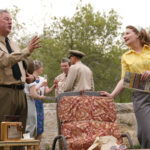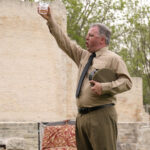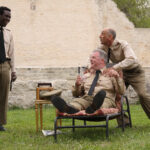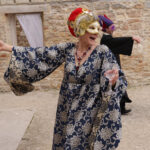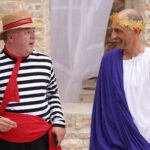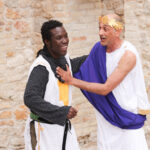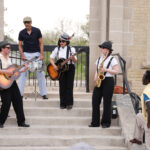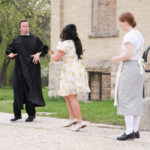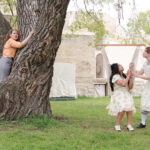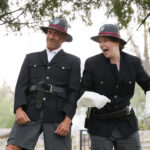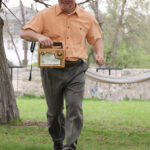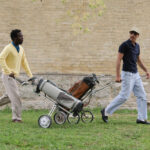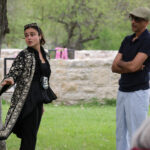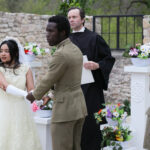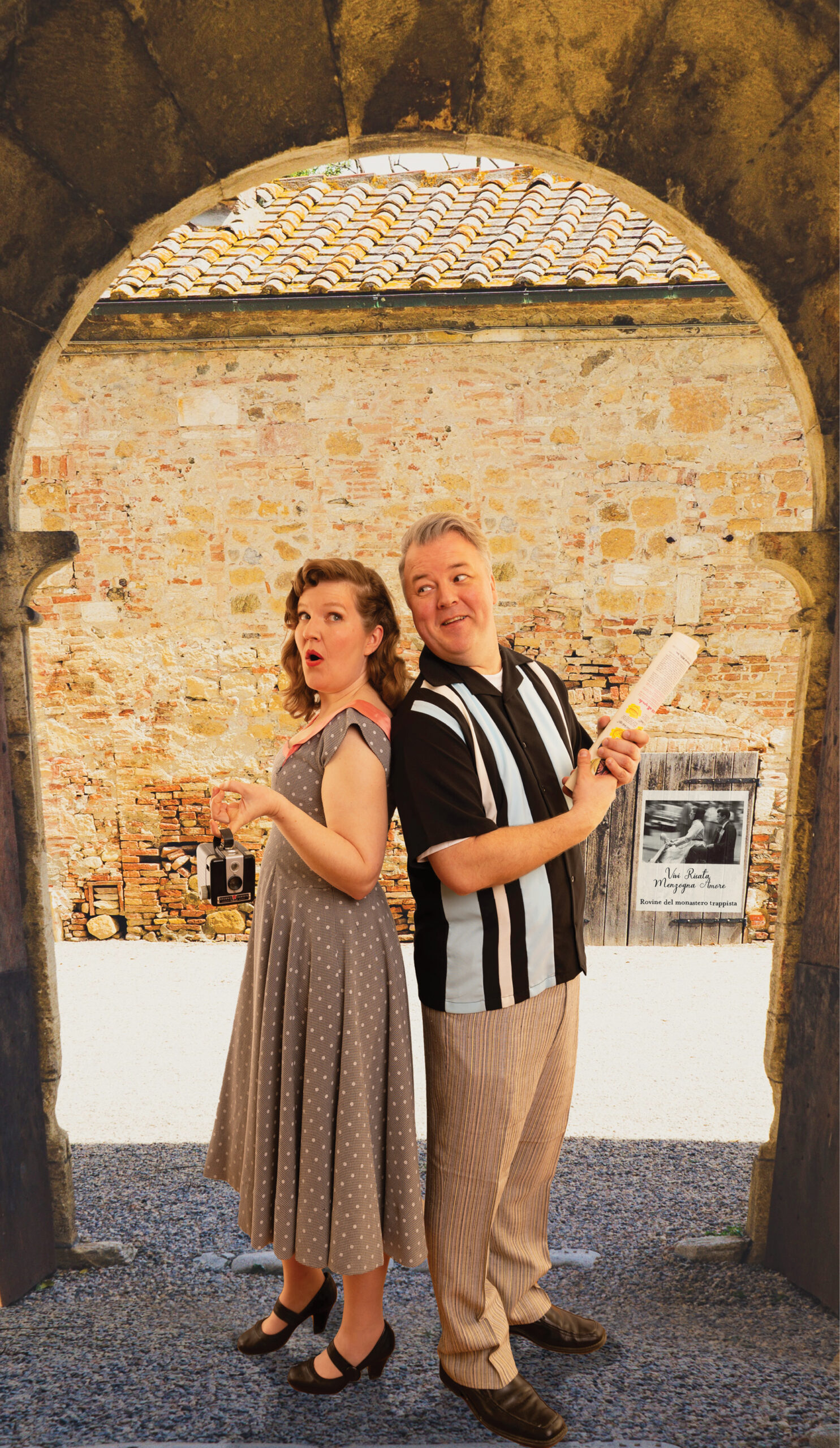
MUCH ADO ABOUT NOTHING
Written by William Shakespeare
June 2 – July 2 | 2022
Much Ado About Nothing is one of Shakespeare’s most delightful comedies, featuring two of his best quarreling lovers, Beatrice and Benedick–who passionately quibble their way into falling madly in love in a world of ‘fake news’, gossip and dangerous lies. In this lively romance, two plots are carefully interwoven to lead to a volcanic fourth act, where the apparent destruction of one marriage (of Claudio and Hero) helps bring about another – that of Benedick and Beatrice. Shakespeare balances the play carefully, peppering high comedy with somber layers of action that ring shockingly fresh today: much of the intrigue in the play is skillfully built on characters overhearing conversations, often laden with misinformation to trick the eavesdropper. In the chaotic age of social media, the themes of this euphoric comedy feel terrifyingly timely.
Performed at Trappist Monastery Provincial Heritage Park (aka “The Ruins”)
Much Ado About Nothing Program
Photography by Leif Norman.
Ann Hodges, on Shakespeare, Returning to the Ruins and Much Ado About Nothing
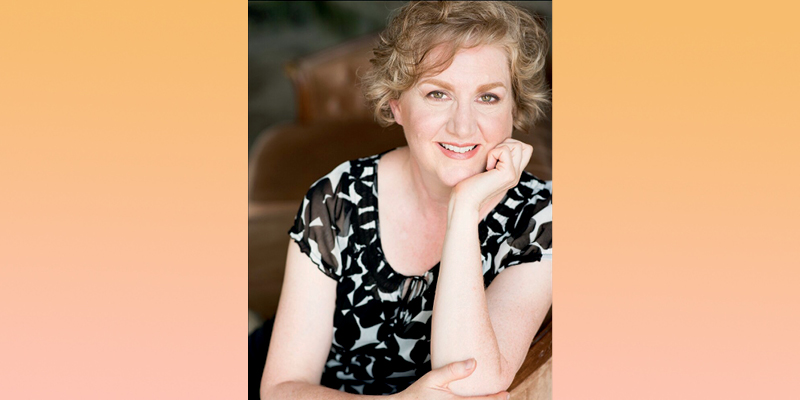
Q: We are back! YOU are back! As one of the founding members of SIR, how does it feel being back after…how many years?
A: What’s so frightening about that question is that I can’t believe how many years it’s been. It’s really neat being back, and it’s lovely. When I left SIR, I kind of thought “gee will I ever direct Shakespeare again”, and to actually have the opportunity to direct Shakespeare again is great; and I love the Ruins and the visual possibilities, the ambiance out there, so much; so it’s really exciting. I did the first four productions (1994-1997), so we started with Romeo and Juliet–which we literally thought was a one-off. We had one grant, and we thought that would be something fun to do that Summer, as everyone does when you get an independent production grant, but I distinctly remember the moment–I think it was a few performances in and we had crowds coming to see the show – the moment of looking at Laura Schroeder (the other co-founder), and going ‘oh this is something that could continue, it is really taking off!’ It was super exciting for us.
Q: What are the biggest challenges, in your view, of staging a show at the Ruins? And some of the biggest pleasures?
A: They’re kind of two sides of the same coin. The Ruins themselves are so stunning, and they provide so many options and visuals, so I think one of the challenges is creating focus, making sure that you place the scenes in a situation that makes sense within this imposing beautiful structure of the Ruins. So you’ve got the beauty of being outdoors, and the beauty of being within this gorgeous outdoor structure. And all that provides huge challenges, because you have the weather, the wind, you have the…I mean there wasn’t a golf course when I was at SIR (laughs), but now there is a golf course next door! So you have all of these outside influences that can distract us. I remember feeling a little bit like a farmer in the early days, because we began to get really good at reading weather reports and the clouds!
Q: Let’s turn our attention to the show you’re directing, Much Ado About Nothing…how do you think this delightful comedy will resonate with people at this tricky time of uncertainty and fear?
A: We like to think that the Arts have meaning, and impact, and given what’s been going on in the world in the last two years, you think ‘what on earth can we say or do that is going to provide any information or comfort or solace to our audiences’–and of course, doing a comedy is always delightful. But the more that I’ve been digging into this play, the more I feel this is the perfect comedy to be doing right now, because it’s all about misinformation and disinformation–misinformation is obviously incorrect; it’s like that game of telephone where I say this or that to someone, and then someone else makes a mistake along the way while passing the information on, and then someone else makes another mistake, and by the time it reaches the end of the line the information is completely warped and distorted. But disinformation is purposeful, deliberately twisted, with the intent to harm and to create chaos. We have examples of both in the play, which is all about gossip and the dangers of the manipulation of information. This is a great comedy that I hope will provide joy and entertainment, but it also carries this exploration of the dangers of purposefully spreading inaccurate information with the intent to cause harm to each other.
Q: How do you make sure that Shakespeare remains alive and vibrant in today’s scene?
A: Any great playwright is writing about the human condition, and I think that to keep Shakespeare alive we have to go deeper, and to remind ourselves about all of humanity – and unlike what happened in Shakespeare’s time, we must include humans who don’t look like William Shakespeare, and include women of course. And we have to be a little less precious about being completely rigid to ideas about “what Shakespeare wanted”–how the heck do we know what Shakespeare wanted? To me, what’s really important is to question every single choice that we’re making, and to explore how the stories shift over time and what they tell us about the complexity of the whole of the human condition. With SIR, that has been the case since the very beginning, when we wanted to produce a Romeo and Juliet that didn’t have any velvet in it! I hope to continue that with Much Ado–this isn’t going to be “Elizabethan gowns”; we want the freedom of really looking at this story and seeing what it has to say about our world now.
Q: And finally: give us a fond memory from the early days of SIR!
A: I have lots of fun memories, like throwing fire balls around the park while staging a big battle sequence in Macbeth so that it looked like there was a huge army running around. But I think the excitement of using the Ruins in different ways, and the fact that every individual member of the audience gets to choose how they’re going to watch the show–because it’s promenade and they move from location to location – is very special. The individual within the collective is actively watching the show from their unique perspective, and I think that is a really precious thing about SIR, really sacred.
Cast
Sarah Constible / Beatrice, Musician/Singer
Ritchie Diggs / Claudio, Sexton, Musician/Singer
Mallory James / Margaret, Dogberry, Paparazzi, Musician/Singer
Tom Keenan / Friar Antonio, Borachio, Messenger, Paparazzi, Musician/Singer
Omar Alex Khan / Don Pedro, Verges, Musician/Singer
Hera Nalam / Hero, Seacoal, Musician/Singer
Sophie Smith-Dostmohamed / Donna Joan, Oatcake, Paparazzi, Musician/Singer
Melanie Whyte / Leonata, Musician/Singer, Conrade
Cory Wojcik / Benedick, Musician/Singer
Toby Hughes – Standby/Understudy: Benedick, Don Pedro, Claudio, Friar Antonio
Spenser Payne – Standby/Understudy: Beatrice, Hero, Leonata, Margaret, Donna Joan
Artistic & Technical Team
Ann Hodges / Director
Sophie Smith-Dostmohamed / Assistant Director
Shauna Jones / Set & Props Designer, Co-Costume Designer
Ksenia Broda-Milian / Co-Costume Designer
Tom Keenan / Musical Arrangements & Music Director
Hera Nalam / Music Composition
Joseph Sevillo / Choreographer
Christopher Brauer / Text Coach
Robert Borges / Fight Director
Sharon Bajer/ Intimacy Director
Steven Vande Vyvere / Production Manager & Running Crew
Cari Simpson / Technical Director & Running Crew
Katie Hoppa / Stage Manager
Samantha Sage / Apprentice Stage Manager
Katie Schmidt / Props & Set Coordinator
Kate George / Wardrobe Maintenance





